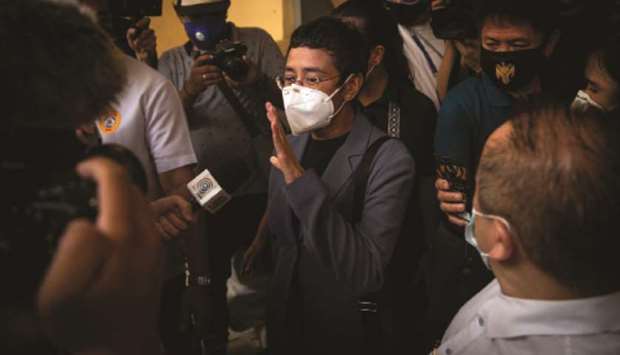Filipino journalist Maria Ressa yesterday appealed her conviction for cyber libel, citing “substantial errors” made by the judge in her verdict, which was seen as a blow to press freedom in the Philippines.
Ressa, head of the news website Rappler, which is critical of President Rodrigo Duterte, and Reynaldo Santos Jr, former researcher and writer, were sentenced to imprisonment of up to six years, with a minimum term of six months and one day on June 15.
In a 133-page motion for reconsideration, Ressa and Santos, who are both out on bail, urged Judge Rainelda Estacio Montesa to set aside her original verdict and acquit them.
“With due respect to the court, substantial errors of law and fact are present in the judgement all of which are correctable by the country,” the motion said.
It also accused Montesa of malice when she described Ressa’s use of the title executive editor of Rappler, instead of editor-in-chief, as a “clever ruse” to avoid liability.
“The court’s role in the trial is to determine malice, not make malicious statements,” it said. “Ascribing an underhanded and even unlawful motive — without assertion or proof — is malicious. It is utterly contemptuous and unbecoming of a judge.”
As editor-in-chief, Ressa would have direct control over what is published and is therefore liable for libellous stories. But Rappler has noted that Ressa was not involved in day-to-day operations. The case stemmed from an article published by Rappler in May 2012, which allegedly linked a businessman to human trafficking and drug smuggling.
Ressa was also not the author of the report, which was posted four months before the law on cyber libel was enacted in September 2012, sparking criticisms that the case was politically motivated and filed in retaliation for Rappler’s critical reporting.

Maria Ressa: seeking court relief
